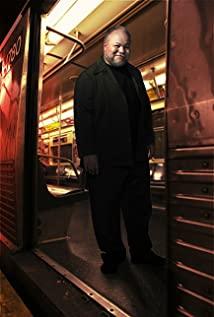The small fishing boat called the Croatian Marie sailed smoothly at sea. The camera gave a close-up view of the bow, and soon, it swung to the stern, watching a pair of slapstick uncles and nephews on the deck from a distance.
"You know, although your father is a pretty good person, he still has a lot of things he can't understand about this world." On the deck, Uncle Li boasted to his nephew, "I can!"
My nephew, Papa, was only six or seven years old, but he could tell from the gap between his words that his father was being provoked. He broke free from his uncle and trotted across the deck. Uncle became nervous and hugged his nephew, afraid that he would get too close to the side of the ship. This is the first scene of the movie "Manchester by the Sea", a boring and cheerful bout, like a verbal contest at the wine table to cover up the mundane life.
"Listen, listen!" Uncle Li didn't give up, and continued to ask his nephew, "If you can only take one person to an isolated island—provided you know that you are safe with him—he is a powerful man Characters, who will do everything, can teach you to survive and live happily. Now, this best person can only be born from your father and me, tell me, who will you choose?"
This scene seems estranged from the main line of the whole story, as if in Chinese writing, an image as Bixing. A man with no great aspirations is treating his brother as an opponent. In a small coastal town, he drinks, fishes, has three children, and tries to spend his life peacefully. In the 17th minute of the film, the director suddenly revealed that his brother Qiao died of illness and Li took over the custody of his nephew Xiaopa. The two uncles and nephews supported each other, and after ten years, the joke became a prophecy.
"Manchester by the Sea" won six nominations at the 89th Academy Awards not long ago, and finally won the "Best Actor" award for Cassie Afletcher's outstanding performance and the film's ingenious narrative structure. " and "Best Original Screenplay" two important awards. The two statuettes are well-deserved and complement each other. The film adopts a two-line narration of flashback structure, with contrasting characters mainly based on nephew Papa, supplemented by restrained camera language and just-right classical soundtrack-they describe the protagonist Li in a very real and touching way, making the film very realistic and touching. It's like an excellent character writing model.
The film tells a stricken family in a gentle way. The protagonist Li is like an old Li around us. Unfortunately, he had a story that he did not dare to mention but was repeatedly missed - one night when he went out to buy wine, Lao Li forgot to add a baffle to the fireplace at home, causing a fire and killing his children.
The Lee in the main storyline, already living in Boston, is omnipotent, as he has previously boasted. He shovels snow, fixes water pipes, unclogs toilets, and does some errands in the neighborhood to make ends meet. Li looked sullen, sometimes irritable, and quite slow to the world. When taking care of his brother's funeral, he was almost indifferent, looking like the "outsider" in Camus' "The Outsider", and his slightly absurd behavior was puzzling. Especially in the winter town of Manchester, after the snow cleared, the streets were white, and Li's discomfort and embarrassment in interpersonal relationships were all exposed.
The entire film is maintained in blue, white, and gray tones, and it seems that the director is trying to use too bright colors to present an otherwise dark story. Matching this tone is the movement of the camera and the setting of the scene - they continue the restraint and prudence in the film's first scene, with the right distance, gazing at the whole process of a down-to-earth man battling his fate. The style of the whole film is calm, with occasional outbursts, just like Li's character.
Lee's tragedy is told slowly in flashbacks as a secondary narrative thread. The climax of this thread is the fire scene that Lee recalls. The editing here is superb. Li sat across from the lawyer, restless. At the beginning, the transition between the flashback and the main line was natural; gradually, Li’s memory was slowly cut open, and cut away with one knife at a time. At this time, the flashback picture became extremely short, and it was only exposed for a few seconds and then quickly cut back to In the main line, to show Li's unease; later, Li's past events are finally revealed, and the flashback footage is gradually lengthened, as if Li finally dared to face his own trauma.
The last flashback here was at the police station. Li cooperated with the investigation of the two police officers and described the incident. The police expressed sympathy and tried to comfort: "We can't arrest you for forgetting to dampen the fireplace, after all, this is the mistake everyone could have made last night."
"So, I can go?" Li originally thought that he would be punished to atone for his sins, but he was easily forgiven. He stood up, staggered, suddenly pulled the gun from the policeman's waist, and tried to kill himself.
Li was stopped by the police. The soundtrack reaches a climax, covering the scene sound and burying the overflowing sadness. When the camera cuts back to the main line of the narrative, Li seems to be agitated by this broken memory - it is not difficult to know that what the film is about to describe is a person who is bound by guilt and sadness but cannot be punished and redeemed.
The winter in Manchester is extremely cold, the land is frozen and cannot be chiseled, and Joe's body cannot be buried, which is accompanied by the issue of Pa's custody in the future. Ten years have passed, and Xiaopa is seventeen years old, as tall as Li. He's a little like Lee when he was young, he loves to play, has his passion for ice hockey, three or five friends, and a bad rock band. He has two girlfriends, and he manages them smartly. Like Li, Papa is not good at expressing feelings. In life, they carefully solicit each other's ideas, quarrel, and carefully repair. It can be seen that Li is no longer the lively and conceited Li who used to be on the deck. He has no confidence in taking care of his nephew until he reaches adulthood.
Joe's funeral, guests in the church, the director used slow motion. For this belated condolence, let Li's relatives and friends gradually return to the narrative - almost all the characters involved in the film appear in this scene. There was no sadness at the funeral. The nephew, Papa, wore a neat suit in front of the camera and hugged the guests with courtesy and thoughtful manners. Papa seems to grow up quickly in this scene, but Li is even more depressed. In the crowd, Li said nothing, avoided social interaction, closed himself, and seemed to be self-punishing.
In the middle, there is another flashback with a short time span - Lee wanders the streets of Manchester and meets his ex-wife Randy. Randy was pushing the stroller, looking good. Ten years later, Randy has come out of the shadows and started a new family. She tried to express her apology and concern for Lee. Li kept his head down, unable to face her face to face, he talked about it, but couldn't utter a complete sentence. Randy began to choked, but Lee hurried away.
The incident convinced Li that he did not have the courage to live in his hometown. The townspeople refused to offer him a job, and he was still frustrated and careless, like falling asleep on the sofa while cooking, the soup was mushy, and he got a room full of cigarettes. There is a surreal plot setting here - Li Mengmeng's two deceased daughters shook themselves awake and asked, "Dad, didn't you see that we were on fire?"
Li finally failed to cheer up and couldn't forgive himself. He handed custody of his nephew to George, a former friend of Joe's, and planned to move the groceries back to Boston.
In the spring, Joe is in the ground, and Manchester has some greenery. Papa gradually relaxes and respects Li's decision. On the way back from the funeral, Li picked up a baseball from the ground and played all the way home. On the way, Li threw the ball to Xiaopa, who said to his uncle in an encouraging way, "It's a good throw!", and then threw the ball back to Li. The uncle and nephew walked far along the way. The story finally brightened up, as if the thick cocoon that was bound to Li's body finally broke open at this moment.
Those tragic characters are easily set up with equally tragic plots and performances, and "Manchester by the Sea" restores the original appearance of life - Li finally failed to reconcile with the tragic, as in ordinary life, there are few true A hero is born. In the film, the director tries to play the role of the person who is trying to open the "cocoon", and in the end, he gives the cocoon to the character himself.
At the end of the film, Li and Xiaopa took another boat ride. The dilapidated "Croatian Marie" had a new engine at this time. There is a detail in the film: Joe's tombstone, with the names of Joe and Lee's parents. The boat was named after my mother.
View more about Manchester by the Sea reviews











